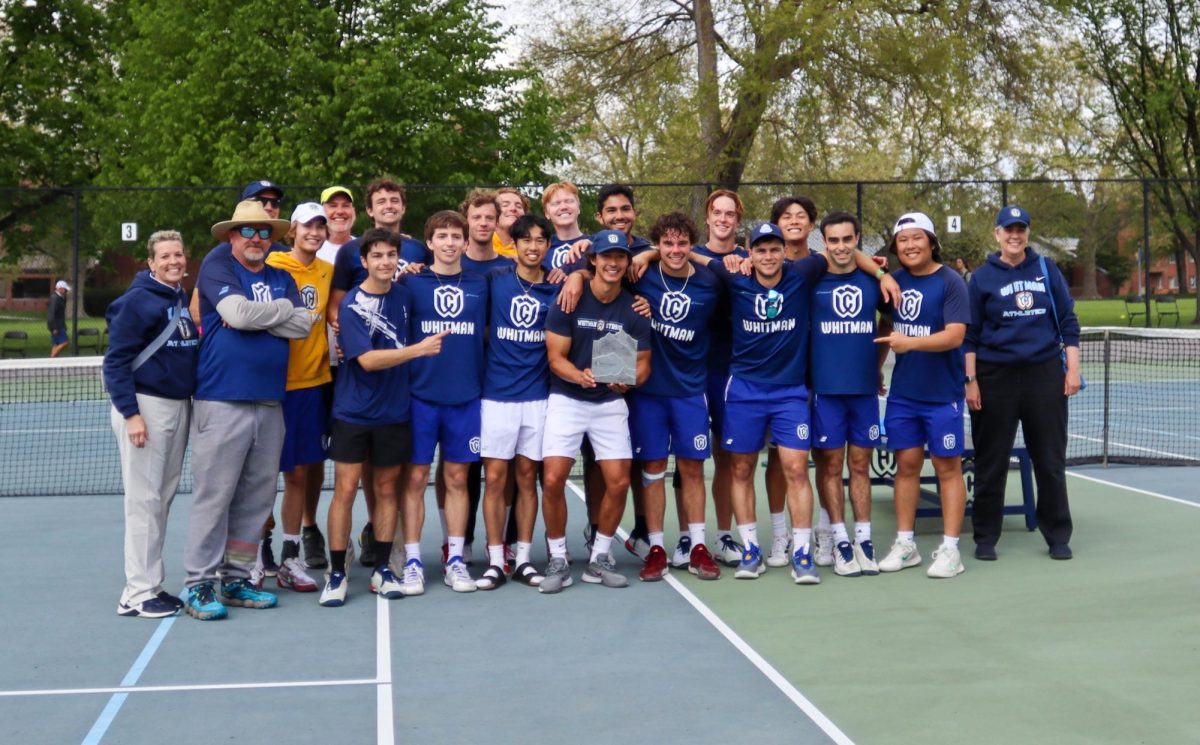Walk into Reid Campus Center any given weekday at about 7 p.m. and you will find hordes of hungry varsity athletes grouped around tables in front of Cafe ’66. Most varsity athletes on meal plans are compelled to eat dinner here almost every night after their practices end since they are not done with their workouts and out of the locker rooms before the last dining hall closes at 7 p.m.
“Our practice times directly coincide with dining hall hours so we are only able to eat at Reid every night,” said first-year volleyball player Maddy Bell.
Some athletes see this as an opportunity to hang out more with their teammates.
“[Eating at Reid every night] doesn’t bother me. I like the ability to bond with the team after practice by eating together,” said Bell.
Others see the current system as problematic.
“Almost everyone on my team is running low on flex dollars, and some people, because they don’t want to add more money, have to eat dinner in their rooms. At the end of the semester, I will have meals left over and not enough flex,” said first-year basketball player Catelyn Webber. “It would be great if meal times for dinners were either later or went longer.”
Whitman Bon Appetit General Manager Roger Edens explained that meal times at Whitman are short in part because there are three full kitchens, which are costly to staff and keep open for long periods of time. As a result, explained Edens, trade-offs must be made.
“Hours of operation must be looked at as a whole: full dinner runs from 5:30-7 p.m. with Cafe ’66 serving a more limited selection until 9 p.m.”
Bon Appetit works with the Whitman administration to attempt to tailor the meal options to fit Whitman students’ unique needs.
“Meal Plan A–with 500 flex dollars and 160 dining hall meals–was specifically designed to be an accommodation to student athletes,” said Edens. “Jewett’s dinner end time was pushed up from 6:45 p.m. to 7:00 p.m. specifically as an accommodation to student athletes.”
Additionally, what used to be a limited snack bar in Reid became a full kitchen and grill. This change was made largely to address the needs of athletes and other students who are busy during the 1.5 hours that Prentiss and Jewett dining halls are open.
Despite Bon Appetit’s efforts at providing excellent dining experiences for Whitman’s athletes, many still see room for improvement.
One issue is the lack of availability of healthy options at Reid Cafe ’66. With options ranging from burgers to pizza to the “Taste of the Week,” students may have access to tasty food, but have more limited vegetable and fruit selections than in dining halls.
“Reid doesn’t really have the same healthy options (like the salad bar) that are offered in the dining halls,” said sophomore volleyball player Rachel Shober.
Because students pay for Cafe ’66 food using their flex dollars, if a student wants both a meal from the grill and fruits or vegetables, dinner can get pricey. Hungry athletes have been finding that their allotted 500 flex dollars is often not enough. At the same time, many have leftover meal swipes at the end of the semester.
Each meal swipe for Plan A is worth nearly 14 dollars, so extra swipes–which do not carry over to the next semester as flex dollars do–can be a significant waste of money for students and their families.
“I am satisfied with eating dinner at Reid, but 500 flex dollars is not enough to get me through a semester,” said senior baseball player Jay Richards. “I run out of flex every semester and usually have meals leftover. It would be nice to have a plan that offered more flex.”
Adjusting Meal Plan A to include fewer meal swipes and more flex could counter this problem that many athletes face; another solution could be to change the dining hall hours to span more total time with less overlap.
“Jewett and Prentiss dining halls have more overlap in their hours than is necessary,” said first-year Christopher Farley, am athlete on the cross-country team.
Less overlap in meal times would not affect the expense of hiring staff or keeping the kitchens open, but could allow athletes like Farley the option of eating in the dining halls for dinner.
Edens emphasizes that the managers of Bon Appetit are open to feedback from students.
“Bon Appetit needs to find creative ways to accommodate students by working individually with those affected,” he said.
The flexibility Bon Appetit has shown in the past illustrates their willingness to work with students on issues such as this, even if there are still frustrations. Though the current meal plan is dissatisfying to many athletes, it seems that pursuing even simple changes could improve their overall dining experience at Whitman.


